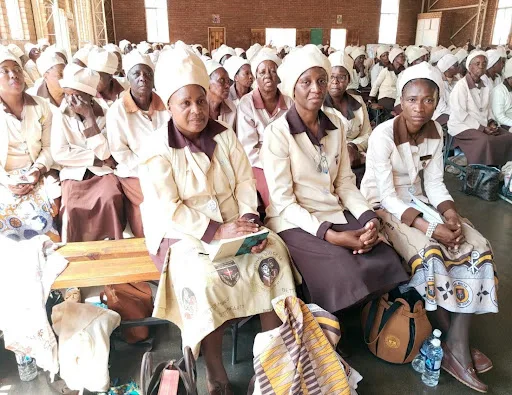By Thabisani Dube
Zimbabwe is reeling from recent violence that claimed eight lives in just five days, including a four-year-old child and two centenarians. The tragedies, rooted in untreated mental illness, highlight a growing national crisis. As the Zimbabwe Republic Police warns of the dangers posed by neglecting mental health, families face a pressing question: how can they support the mental health of their children in a country where stigma and systemic barriers loom large?
“These tragedies underscore a growing national crisis of untreated mental illness leading to violence,” said Commissioner Paul Nyathi, National Spokesperson for the Zimbabwe Republic Police (ZRP). He urged families to seek professional help for loved ones grappling with mental health challenges.
The alleged perpetrators of the recent attacks, Patrick Makufa in Karoi and Phamani Sibanda in Bulilima, were adult men in their thirties and forties. While the violence did not involve youth, it exposed a deeper issue affecting generations. Across Zimbabwe, from the crowded flats of Mbare to the quiet villages of Chimanimani, teenagers endure a silent battle with depression, anxiety, and trauma, often misunderstood by their families and underserved by the healthcare system.
A joint report from the Ministry of Health and Child Care and UNICEF reveals that anxiety disorders affect at least 2.8 percent of Zimbabweans, with depression likely more widespread. Suicide attempts among adolescents are rising, and the lack of early intervention is resulting in tragic losses.
Mental illness in Zimbabwe carries a heavy stigma. Parents frequently misinterpret emotional distress as laziness, disrespect, or even spiritual affliction. A teenager who withdraws, lashes out in anger, or struggles academically may face punishment instead of support, further deepening their isolation. Yet research indicates that parental involvement is crucial for both prevention and recovery.
“Mental health begins with connection,” says Dr. Chido Rwafa-Madzvamutse, a psychiatrist and mental health advocate. “We thrive when we are loved, understood, and supported.”
Despite the urgent need for mental health services, Zimbabwe’s infrastructure remains woefully inadequate. The World Health Organisation’s assessment shows that over 85 percent of individuals with severe mental disorders receive no treatment. With fewer than 20 psychiatrists serving a population of over 15 million, many rural residents in Zimbabwe struggle to access care. Families often wait months for appointments, and primary health facilities seldom provide mental health screening or counselling.
A 2023 study published in ResearchGate highlights systemic challenges: underfunded services, lack of integration in primary care, and minimal public education. Zimbabwe allocates less than one percent of its national health budget to mental health, far below the WHO-recommended five percent.
To address these gaps, the Ministry of Health and Child Care has expanded its mental health strategy beyond the 2023 FRIENDZ initiative. Renewed efforts in 2024 and 2025 focus on decentralising care and strengthening community support. The WHO’s Special Initiative for Mental Health reports increased investments in training general health staff to identify and assist individuals with mental disorders, particularly in underserved rural areas.
Complementing these efforts, the Zimbabwe Life Project (ZLP), a nonprofit initiative, fosters resilience through skills exchange programmes with UK-based professionals. ZLP also supports continuous care models and donates medical equipment to local facilities, enhancing capacity.
However, stigma remains a significant barrier. In some communities, mental illness is viewed as a curse or moral failing. Yet change is on the horizon. Churches, schools, and non-governmental organisations (NGOs) are increasingly offering mental health education and support groups for parents. Faith leaders are challenging harmful narratives and promoting healing.
“We need to talk about it,” says one grandmother attending the St. Anne Guild Diocesan Congress at Marist Brothers High School in Dete, Matabeleland North Province. The congress, held from August 21 to 24, 2025, gathered women from across Hwange Diocese for spiritual formation and dialogue with clergy. Topics included mental health, parenting, and family resilience.
Dr Brenda Muchabveyo, a sociologist at the University of Zimbabwe, says adolescent mental distress in Zimbabwe is too often misread as rebellion or spiritual weakness, a perception rooted in stigma, silence, and over-reliance on cultural scripts of discipline and faith.
She said what is urgently required are socio-cultural interventions that normalise open dialogue on mental health within families, schools, and communities. Faith leaders, who remain trusted figures, can play a pivotal role in reframing mental illness as a health issue rather than a moral failing.
“At the policy level, we need stronger investment in integrating mental health into primary care, training teachers and community health workers to identify early warning signs and ensuring referral pathways that are affordable and accessible. Adolescents require empathy, safe spaces, and systemic support, not punishment or dismissal,” she noted.
By combining culturally grounded awareness with structural reform, Zimbabwe can begin to shift from crisis response to prevention and early intervention in adolescent mental health
The recent tragedies in Karoi and Bulilima serve as national warnings. Zimbabwe must invest in mental health infrastructure, train more professionals, and empower families to act early. Parenting, policy, and public awareness must converge to prevent further loss.
As Commissioner Nyathi emphasised, “People with mental health challenges must be closely monitored and referred to medical institutions early to prevent such outbreaks of deadly violence.” Dr. Rwafa-Madzvamutse adds, “Healing begins with love, but it must be supported by a national commitment to care.”
Zimbabwe’s youth deserve more than survival. They deserve support, dignity, and a future free from silence. The time for action is now, as families and communities come together to foster a healthier society for all.



